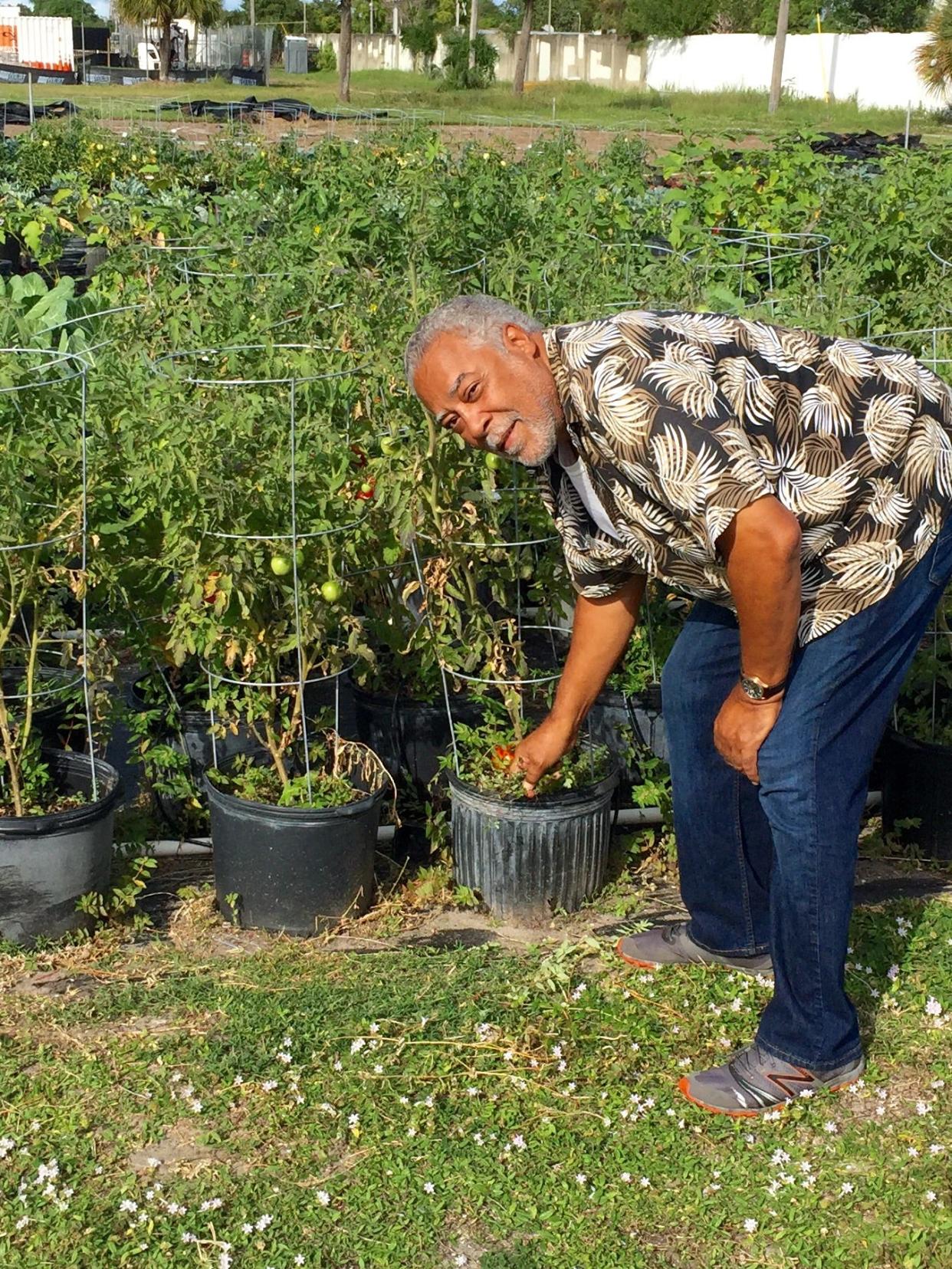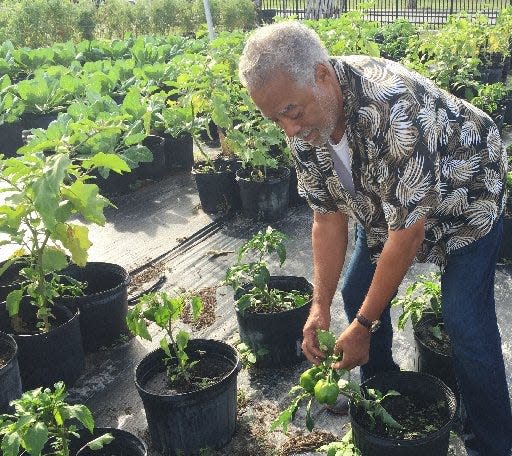Urban gardens good for grocery deserts in West Palm Beach

Several weeks ago on this page, we lamented West Palm Beach's decision to scrap the urban farm that brought color, life and fresh produce to a dusty food desert north of downtown. There's no full-sized grocery within a mile, so Henrietta Bridge Farm, the creation of Vietnam War veteran Stewart Bosley on an acre-and-a-half of city land, was a godsend to residents within walking distance.
Alas, the city, for reasons yet unexplained — other than vague talk of building half-way houses — declined to renew Bosley's lease this year and forced him to clear out.
Now comes more-encouraging news. City hall has worked out a deal with an arm of Florida A&M University to establish three smaller urban farms and educational programs to serve low-income residents in West Palm Beach, starting within six months.
Previously: Find urban farm a new home | Editorial
Your voice: Community needs urban garden
Editorial: If conditions warrant, DeSantis should restore local COVID protections
We'll be glad to see the gardens take root, and to do so under professional guidance, with room for growth to other spots in the future.
The historically Black university has a dozen community garden programs scattered around the state but this would be its first in South Florida. The programs, in underserved communities, provide services to small farmers or people interested in becoming farmers but also provide job-training certification, sustainable farming and nutrition education, 4-H Club youth development and, of course, vegetables.
The produce raised in the West Palm gardens will be available to program volunteers and other community residents.
The gardens will be located near the Coleman Park Community Center, 1116 21st St., in a former teaching garden behind the tennis courts; at Pleasant City's Gloria Y. Williams Multicultural Center, 2147 Spruce Ave., also formerly a teaching garden; and in a vacant lot just north of Phipps Park, at 4715 S Dixie Highway.
FAMU will provide money for materials, supplies and training. The city is having soil tests done to check for contaminants.
Though the sites are much smaller than the now-bulldozed Henrietta Avenue property, Vonda Richardson, executive director of FAMU's Cooperative Extension Program, said they'd each provide enough produce for 30 to 50 people.
Jennifer Ferriol, the city's director of Housing and Community Development, said the city wants to start small but will consider other locations once these get up and running. A first step will be to reach out to community members for input into the project, to participate and to generate the kind of ownership that can dissuade vandalism.
The city might find it harder to win that community backing when it undertakes to contract for transitional and supportive housing to take the place of the closed Henrietta Bridge Farm.
"Addressing this need for our workforce, residents and individuals experiencing homelessness is among Mayor (Keith) James’ top priorities," a city press release noted.
As important as they are, concentrating halfway homes in an already challenged area might not easily win acceptance. But one step at a time. The new gardens will help generate positive change, particularly in sustaining the city's longtime efforts to revitalize the historic Northwest neighborhoods.

Bosley, for his part, gets credit for planting the idea for urban farming in West Palm Beach and running Henrietta Bridge Farm for years. It was Bosley who recommended the city reach out to FAMU, which he first urged about 10 years ago and then again more recently. Though he regrets the city sidelined his farm, just as a new growing season was beginning at that, he has offered to help with the new ones however he can.
Occasionally he glances through the chained gate to the now-silent lot at 401 N. Rosemary Ave. Some of the plants he established still push their way up through the soil.
Despite the closing, the good news is, though he's "still a Marine in my head," he can afford to be less regimented now, since he no longer has to wake up early to farm. "I'm getting more sleep," he says.
This article originally appeared on Palm Beach Post: Plan for FAMU, West Palm brings hope for urban farm in food deserts

